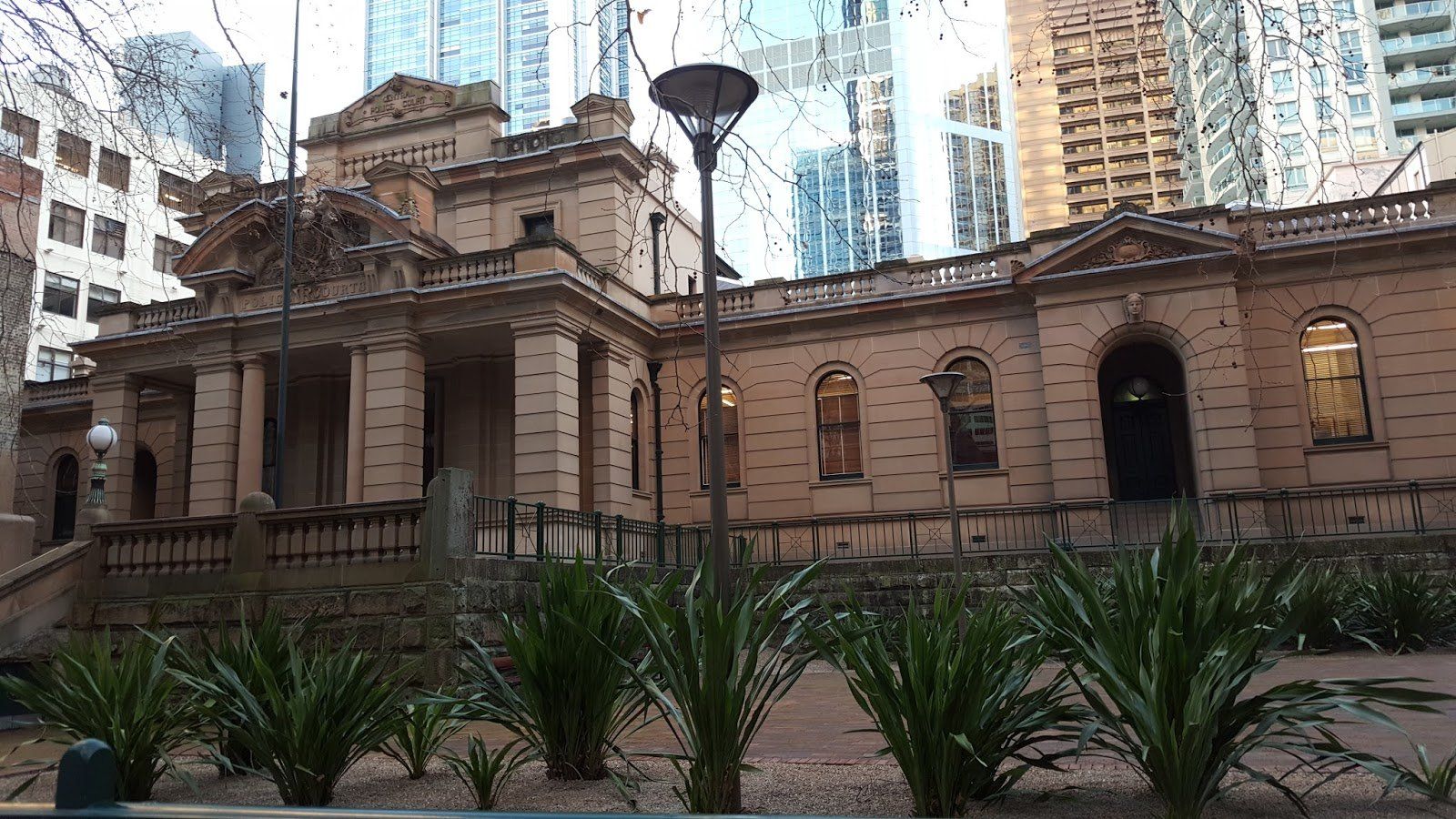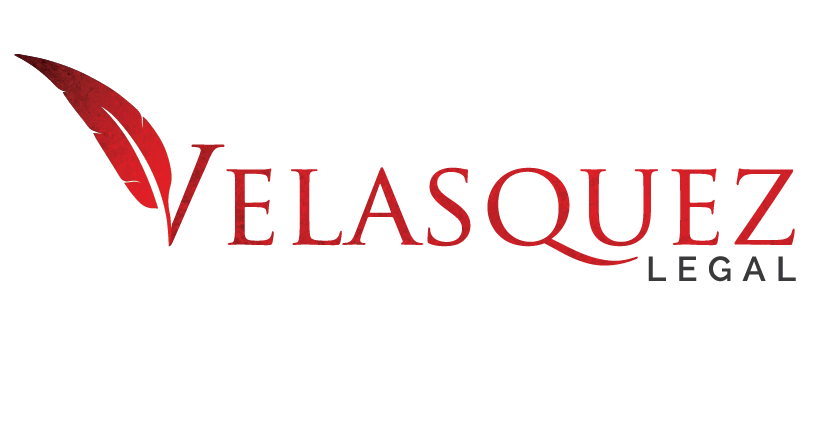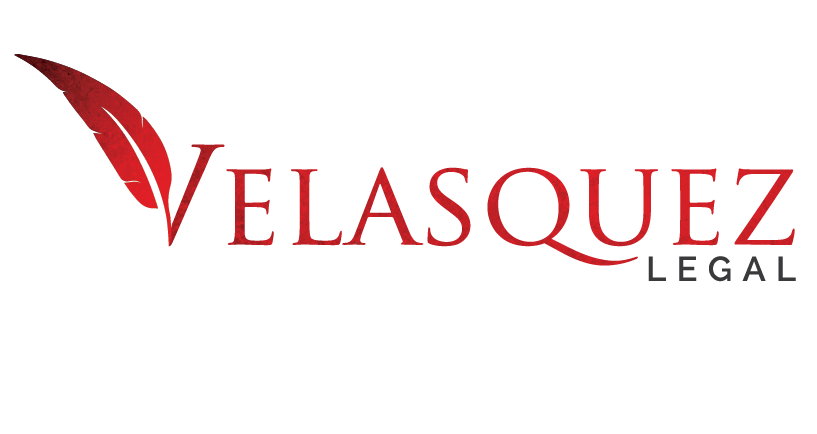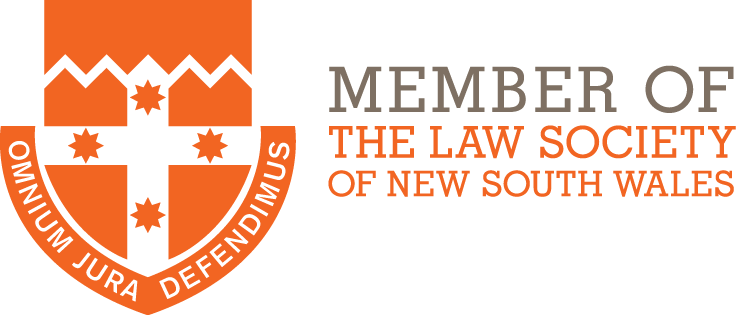News & Self Help

Wishing You a Merry Christmas and a Happy New Year! This holiday season, we hope you enjoy the time spent with your loved ones. May your days be filled with joy, warmth, and the spirit of Christmas. We look forward to reconnecting with you in the new year and continuing to provide the best service possible. Thank you for your support throughout the year! We'll be back in 2025 with even more exciting plans to share. Until then, take care, relax, and have a wonderful festive season! Closure Dates: Start: 19 December 2024 End: 13 January 2025 Reopening: 14 January 2025 Happy Holidays from all of us! For urgent matters please leave an email at carla@velasquezlegal.com or reach out to our customer support staff using (02) 8815 8175.

Unlock a clear understanding of the NSW criminal justice system with our comprehensive step-by-step guide. This informative article breaks down each stage—from investigation and arrest to court proceedings and sentencing—demystifying the legal processes involved. Whether you're facing charges, supporting someone who is, or simply want to learn more about how the system works, this guide provides valuable insights to help you navigate confidently. Empower yourself with knowledge and discover how our experienced criminal defence lawyers can assist you at every step.

This post explains the importance of a case conference as part of the Early Appropriate Guilty Plea (EAGP) process. It outlines the steps involved, the potential benefits of an early guilty plea, and the role of both the client and their lawyer during the case conference. The post emphasizes that the lawyer will only act on the client’s specific instructions, ensuring that any decisions, including whether to accept or reject offers from the prosecution, are made with the client’s input. It also provides practical information about where the meetings take place and how the process can help streamline the case.

Facing criminal charges in NSW? Discover the critical value of hiring a specialist criminal defense lawyer. From protecting your rights to building a tailored defense strategy, an experienced criminal lawyer can significantly impact the outcome of your case. Learn how expert legal representation can minimise penalties, negotiate favorable deals, and provide essential support through every step of the legal process.

This article celebrates the recognition of a female solicitor at Velasquez Legal, who was recently named as one of the best solicitors in Sydney for 2023. The post highlights the achievements, dedication and hard work of the solicitor and also praises the contribution of her colleagues and support staff towards her success.
Section 322 of the Crimes Act of 1900 in Australia makes it illegal to threaten or intimidate judges, witnesses, jurors, or public justice officials. The maximum sentence for this crime is 10 years in prison, or 14 years if the behavior was meant to get someone convicted or found not guilty of a serious indictable crime. To prove the crime, the prosecution must prove several facts beyond a reasonable doubt. There are also several ways to defend oneself in court if charged with the crime. The penalties for threatening or intimidating judges, witnesses, jurors, or public justice officials can include prison time and fines.
Corrupting witnesses or jurors is an offence under section 321 of the Crimes Act 1900. The maximum penalty for the offence is 10 years in prison, or 14 years where the conduct was intended to procure the conviction or acquittal of any person for a serious indictable offence. The prosecution is required to prove a number of facts beyond a reasonable doubt in order to establish the offence, and a person is entitled to an acquittal if they are unable to do so. There are also a number of legal defences available to those who are going to court for the offence. Read on for more information about corruption of witnesses or jurors, including the offence itself, the matters that the prosecution needs to prove, your options, the available defences and the applicable penalties. The Law What is the Offence of Corrupting Witnesses or Jurors? Corruption of witnesses or jurors is an offence under section 321 of the Crimes Act 1900. Corrupting a witness Section 321(1)(a) states that a person is guilty of corrupting a witness if he or she: Confers procures or offers any benefit on or for any person or attempts to do so, and Does so intending to influence any person called, or to be called, in judicial proceedings to give false evidence, withhold true evidence or not to attend as a witness, or not produce anything in evidence under a summons or subpoena. A ‘judicial proceeding’ is one in or before which a judicial tribunal can take evidence under oath. A ‘judicial tribunal’ is any person, including a coroner or arbitrator, or any court or other body authorised by law or by the consent of parties that may conduct a hearing to determine any matter or thing. Corrupting a juror Section 321(1)(b) states that a person is guilty of corrupting a juror if he or she: Confers procures or offers any benefit on or for any person or attempts to do so, Does so intending to influence any person, whether or not a particular person, in their conduct as a juror in any judicial proceeding, or not to attend as a juror in any judicial proceeding, and Intends by doing so to pervert the course of justice. It is immaterial whether the person who is intended to be influenced had been sworn as a juror at the time of the conduct. ‘Perverting the course of justice’ is defined by section 312 of the Act as, “obstructing, preventing, perverting or defeating the course of justice or the administration of law”. It includes such conduct as: Attempting to bribe a police or judicial officer to avoid being prosecuted or punished, Falsely swearing or declaring that another person was responsible for an offence Using another person’s phone or email to manufacture a defence to a crime, or Encouraging or bribing another person to plead guilty to a crime they did not commit, or to provide a false alibi, or give false testimony in court. Benefitting from corrupting a witness Section 321(2)(a) states that a person is guilty of benefitting from corrupting a witness if he or she: Solicits accepts or agrees to accept any benefit for him or herself or for another, and Does so in order for a witness in judicial proceedings to give false evidence, or withhold true evidence, or not attend as a witness, or not produce anything in evidence under a summons or subpoena. Benefitting from corrupting a juror Section 321(2)(b) states that a person is guilty of benefitting from corrupting a juror if he or she: Solicits accepts or agrees to accept any benefit for him or herself or for another, Does for him or herself as a juror in judicial proceedings or for any other person who is a juror in judicial proceedings to do or not do anything related to those proceedings, or to not attend those proceedings, and Intends by doing so to pervert the course of justice. What are the Penalties? The maximum penalty for corrupting witnesses or jurors is 10 years in prison or 14 years where the conduct was intended to procure the conviction or acquittal of any person for a serious indictable offence (which is an offence that carries a maximum penalty of 5 years or more in prison). However, is important to bear in mind that this is the maximum sentence that can be imposed, and that the court can apply any of the following penalties for the offence: Section 10 Dismissal Conditional Release Order Fine Community Correction Order Intensive Correction Order A shorter prison term What Does the Prosecution Have to Prove? It is important to bear in mind that, at all times, the prosecution bears the onus of establishing each element of the specific offence under section 321 beyond all reasonable doubt. Corrupting a witness For a person to be found guilty of corrupting a witness under section 321(1)(a), the prosecution must establish each of the following ‘elements’ (or ingredients) of the offence beyond a reasonable doubt: The defendant conferred, procured or offered any benefit on or for any person or attempted to do so, and The defendant did so intending to influence any person called, or to be called, in judicial proceedings to give false evidence, withhold true evidence or not to attend as a witness, or not produce anything in evidence under a summons or subpoena. A ‘judicial proceeding’ is one in or before which a judicial tribunal can take evidence under oath. A ‘judicial tribunal’ is any person, including a coroner or arbitrator, or any court or other body authorised by law or by the consent of parties that may conduct a hearing to determine any matter or thing. The prosecution will fail if it cannot prove each of these elements to the required standard. Corrupting a juror For a person to be found guilty of corrupting a juror under section 321(1)(b), the prosecution must establish each of the following ‘elements’ (or ingredients) of the offence beyond a reasonable doubt: The defendant conferred, procured or offered any benefit on or for any person or attempted to do so, The defendant did so intending to influence any person, whether or not a particular person, in their conduct as a juror in any judicial proceeding, or not to attend as a juror in any judicial proceeding, and The defendant intended by doing so to pervert the course of justice. It is immaterial whether the person intended to be influenced had been sworn as a juror at the time of the conduct. ‘Pervert the course of justice’ is defined by section 312 of the Act as: “obstructing, preventing, perverting or defeating the course of justice or the administration of law”. It includes such conduct as: Attempting to bribe a police or judicial officer to avoid being prosecuted or punished, Falsely swearing or declaring that another person was responsible for an offence Using another person’s phone or email to manufacture a defence to a crime, or Encouraging or bribing another person to plead guilty to a crime they did not commit, or to provide a false alibi, or give false testimony in court. Benefitting from corrupting a witness For a person to be found guilty of benefitting from corrupting a witness under 321(2)(a), the prosecution must establish each of the following ‘elements’ (or ingredients) of the offence beyond a reasonable doubt: The defendant solicited, accepted or agreed to accept any benefit for yourself or another, and The defendant did so in order for a witness in judicial proceedings to give false evidence, or withhold true evidence, or not attend as a witness, or not produce anything in evidence under a summons or subpoena. Benefitting from corrupting a juror For a person to be found guilty of benefitting from corrupting a juror under 321(2)(b), the prosecution must establish each of the following ‘elements’ (or ingredients) of the offence beyond a reasonable doubt: The defendant solicited, accepted or agreed to accept any benefit for him or herself or another person, The defendant did so for him or herself as a juror in judicial proceedings or for any other person who is a juror in judicial proceedings to do or not do anything related to those proceedings, or to not attend those proceedings, and The defendant intended by doing so to pervert the course of justice. What are the Defences? In addition to the requirement to prove each element of the offence, the prosecution must also disprove any of the following defences if properly raised: Duress, which is where you were threatened or coerced, Necessity, where the act was necessary to avert danger, and Self-defence, where you engaged in the act to defend yourself or another It must disprove any such defences beyond all reasonable doubt. Your Options in Court Pleading Not Guilty It is important to bear in mind that the burden of proving guilt beyond a reasonable doubt always rests on the prosecution, and that the prosecution must disprove any valid legal defence raised on the evidence before the court. Corrupting a witness Before you can be found guilty of corrupting a witness under 321(1)(a), the prosecution must prove beyond reasonable doubt that: You conferred, procured or offered any benefit on or for any person or attempted to do so, and You did so intending to influence any person called, or to be called, in judicial proceedings, give false evidence, withhold true evidence or not to attend as a witness, or not produce anything in evidence under a summons or subpoena. There are a number of ways to defend a charge of corrupting a witness, including raising the fact that: The prosecution cannot prove you conferred, procured or offered any benefit on or for any person or attempted to do so, The prosecution cannot prove did so intending to influence any person called, or to be called, in judicial proceedings, The prosecution cannot prove any such influence was intended to get them to give false evidence, withhold true evidence or not to attend as a witness, or not produce anything in evidence under a summons or subpoena, or A valid legal defence is available which the prosecution is unable to disprove beyond a reasonable doubt. If any of these matters prevail, you must be found not guilty of the offence. A good lawyer will be able to make written submissions to the prosecution with a view to having the case against you withdrawn, or fight to have it thrown out of court if it proceeds to a defended hearing or trial. Corrupting a juror Before you can be found guilty of corrupting a juror under 321(1)(b), the prosecution must prove beyond reasonable doubt that: You conferred, procured or offered any benefit on or for any person or attempted to do so, You did so intending to influence any person, whether or not a particular person, in their conduct as a juror in any judicial proceeding, or not to attend as a juror in any judicial proceeding, and You intended by doing so to pervert the course of justice. There are a number of ways to defend a charge of corrupting a juror, including raising the fact that: The prosecution cannot prove you conferred, procured or offered any benefit on or for any person or attempted to do so, The prosecution cannot prove that if you did the above, you did not do so intending to influence any person, whether or not a particular person, in their conduct, The prosecution cannot prove that any conduct you intended to influence was in relation to as a juror in any judicial proceeding, or not to attend as a juror in any judicial proceeding, The prosecution cannot prove that, through your conduct, you intended to pervert the course of justice, or A valid legal defence is available which the prosecution is unable to disprove beyond a reasonable doubt. If any of these matters prevail, you must be found not guilty of the offence. Benefitting from corrupting a witness Before you can be found guilty of benefitting from corrupting a witness under 321(2)(a), the prosecution must prove beyond reasonable doubt that: You solicited, accepted or agreed to accept any benefit for yourself or another, and You did so in order for a witness in judicial proceedings to give false evidence, or withhold true evidence, or not attend as a witness, or not produce anything in evidence under a summons or subpoena. There are a number of ways to defend a charge of benefitting from corrupting a witness, including raising the fact that: The prosecution cannot prove you solicited, accepted or agreed to accept any benefit for yourself or another, The prosecution cannot prove the purpose of any such benefit was for a witness in judicial proceedings to give false evidence or withhold true evidence, or not attend as a witness, or not produce anything in evidence under a summons or subpoena, or A valid legal defence is available which the prosecution is unable to disprove beyond a reasonable doubt. If any of these matters prevail, you must be found not guilty of the offence. Benefitting from corrupting a juror Before you can be found guilty of benefitting from corrupting a juror under 321(2)(b), the prosecution must prove beyond reasonable doubt that: You solicited, accepted or agreed to accept any benefit for him or herself or another person, You did so for yourself as a juror in judicial proceedings or for any other person who is a juror in judicial proceedings to do or not do anything related to those proceedings or to not attend those proceedings, and You intended by doing so to pervert the course of justice. There are a number of ways to defend a charge of benefitting from corrupting a juror, including raising the fact that: The prosecution cannot prove you solicited, accepted or agreed to accept any benefit for him or herself or another person, The prosecution cannot prove the purpose of any such benefit was for yourself as a juror in judicial proceedings or for any other person who is a juror in judicial proceedings to do or not do anything related to those proceedings or to not attend those proceedings, and The prosecution cannot prove you intended by doing so to pervert the course of justice. A valid legal defence is available which the prosecution is unable to disprove beyond a reasonable doubt. If any of these matters prevail, you must be found not guilty of the offence. Pleading Guilty Where the prosecution evidence is very strong, you may decide to plead guilty to the offence. In that case, your lawyer may be able to negotiate the police ‘facts’ to reduce the seriousness of the offence. Your lawyer can also guide you on obtaining materials that can be handed up to the court during your sentencing – including a letter of apology, character references and any documents from counsellors or health care professionals you have consulted. These materials, together with persuasive verbal submissions by your lawyer in the courtroom, can help to ensure you receive the most lenient penalty that is possible in the circumstances. By pleading guilty at an early stage, you will also be entitled to a ‘discount’ of up to 25% on your sentence – which can lead to a less serious type of penalty being imposed; for example, a section 10 dismissal or a conditional release order rather than a more serious penalty. You will also be spared the time, expense and stress of a defended hearing or trial.



